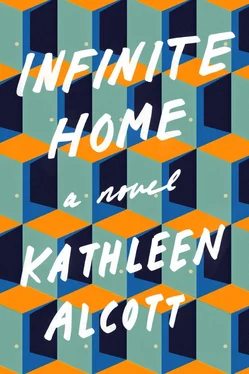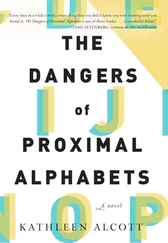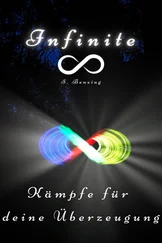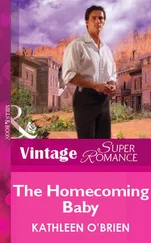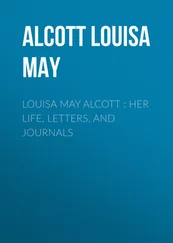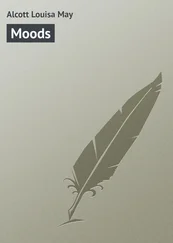The tenants over the years had followed a cycle nearly generational, seeming to arrive and leave in demographic groups, their incomes growing and manner refining as the years went by. The couples who showed up with hands clasped, the women peering into the closets as if they might find another room or some other unexpected benefit, the men checking the locks on all the windows: few, in the decades of suburbia’s blossoming, lasting more than a year after the appearance of children. When they knocked to return their keys, the towheads balanced on their hips and reaching for their mothers’ earrings, Edith always wished them well in their new lives.
The present mix of renters was somewhat unlikely; that is, Edith might have thought so had she possessed the curiosity and energy to find anything at all very strange. She drank them in like tap water, unconcerned about their original source and the details of their travels to her, though she welcomed them in for coffee or tea and always waved when they passed on the street.
The young-seeming man in 2A, right above her, was certainly the kindest. He called her “darling Edith” and “Rose garden” and smiled at her so broadly that she never minded the music he made, which filtered through his floor down to hers, a muddle of cymbals and electronic keyboard and fractured song. There was something wrong with him, she’d noted when he first moved in: a slant to his eyes and point to his ears and thud to his step. His sister, a tired woman in business attire, stopped by daily, her arms often full with groceries.
Across the hall from Paul — who preferred “Paulie,” or “just ‘pal,’” he joked — was another man, and he didn’t look or behave young at all. He’d been there the longest, fifteen years or twenty, and had changed as much as the neighborhood. A stand-up comic, or he had been, in the beginning, and doing well — gigs at all the best clubs in the city at a time when New Yorkers lined up around the block for the chance to laugh and drink beer in those crowded, sub-street spaces — though things had slowed down for him and he didn’t seem all that funny anymore. Edward used to have people over, loud ones who seemed to be competing with one another for the sonic space until the outbursts of synchronized laughter came, amplified by liquor. When Edith saw him now, he always seemed to be burdened, ascending the stairs slowly, sometimes sitting on the stoop for hours at a time with a pen and a small black notebook, rooted and still. She had once spotted him at the corner bodega, standing in front of the glass doors by the six-packs of imported lagers, and nearly approached but retreated when she noticed the shaking of his shoulders and shining of his cheeks.
On the third floor, sweet Thomas. He reminded Edith of a professor, the way he thought so visibly, part of his forehead often wrinkled. A few weeks after it happened, he had recounted his stroke to her over tea with such grace that she had reached for his hand — the one he could feel — and squeezed. Struck with an urge to give him something, she hurried down to the long-untouched portion of her closet, withdrew Declan’s favorite sweater, wheat with leather elbow patches. He had not recoiled at the dead man’s cardigan, had instead pressed the wool to his face and breathed in, and after that he wore it regularly and always attached small notes or pressed flowers with his rent checks. When they appeared a few months later, Edith did not ask about the scars on his lifeless arm, the lines straight as the grids of maps. His thirty-four years had done almost nothing to dull the glowing skin of boyhood, which made the slack left arm, the unmoving side of his face, even harder to witness.
The girl across from Thomas, in the last years of her twenties, acted like something hunted: Edith doubted she’d seen Adeleine four times in the past year. She dressed much like Edith had when she’d first arrived in New York: tailored wool skirts and silk gloves, hats with netted veils, leather clutches. Her hair crafted with the care that had disappeared from fashion long ago, her lips colored but not glossy as was typical of young women now. Either she came and went in the middle of the night or she came and went very little, and her hands shook like underthings on a clothesline. The few times Edith had been up to the top floor recently, she had lingered outside Adeleine’s door, drawn by the sounds: warm, crackling music, low but still audible, songs Edith had spent time with decades before. From the street, one could see the browned lace curtains that hid the girl, and the lights, always on, attending to her as she fought off sleep.

THOMAS HAD BEEN AN ARTIST, had made things that explained systems: the way in which a cloud processed water; a methodical rendering of the evolution of architecture, from the woven shelter to the skyscraper; the journey from zygote to infant to octogenarian. These processes were expressed in captions and careful colors and an arrangement of space that suggested plans drawn in pencil, calculations and rulers. He had started to show in galleries that used light with the precision of scientists and hawked absurdities for too much money; to sell his wall-sized pieces to people who invited him to their opulent homes and stared at him, waiting to understand his composition, loosening him with bitter beers and aged Scotches. He had begun to think this was his life, days of work chased by dinners with patrons, restaurants in lower Manhattan that served ludicrous small plates, seaweed foam and hay reductions.
His friends had told him to think of the stroke as offering a new set of parameters to work within, but he could tell by the protracted way they looked at the old pieces that they didn’t believe it. He had never been one to enjoy rolling around in the abstract, and so the thought of using the partial death of his body as an excuse for paintings that merely suggested depressed him so much that he set about eliminating the possibility, putting his paints and graphite pencils and fine and broad brushes and scissors away without knowing if he’d take them out again. With the apartment suddenly bare, he understood that he had been living life as completely as he’d meant to — an idea he meant to follow pinned to every surface — and from then on, he kept it clean and stark as a reminder of how much there was to fill.
He began to see the friends who stopped by as silly, vapid vessels, containers of undercooked opinion and little feeling. His congenital kindness remained, but he couldn’t bring himself to dance in their conversational circles anymore, could not bear to discuss whether some video artist had effectively captured the spirit of the working class through the documentation of silent after-hours factory break rooms, could not say with confidence that he saw one creative life as worthless and another as formidable. They sensed his discomfort and shifted the conversation to gossip. A woman he had dated, a beauty but something of a drunk, had lit a bathroom trash can on fire at a recent party and stayed on the toilet laughing for a full ten minutes until the flames reached the curtains and someone came in with an extinguisher. Could he believe it?
Yes, he said. He could. What was there to doubt? Nothing of their lives — the gathering of warm bodies to trade catty comments, the rush to make a late-night train, the unlikely success or failure of an acquaintance — felt remarkable to him. He began to find other things amusing. Washing machines, for instance; that self-important buck when they started. The tendency of rats eating their breakfasts on the rails of the subway to sit up on their haunches and sniff arrogantly, and all the people above waiting, refusing to touch each other. If grief was finding laundry comical, and the thought of picking up phone calls from family members and friends peculiar, and newspaper headlines or pedestrians on the street below more and more foreign, then so be it. He still found plenty of reasons to get up in the morning. Edith, for one.
Читать дальше
